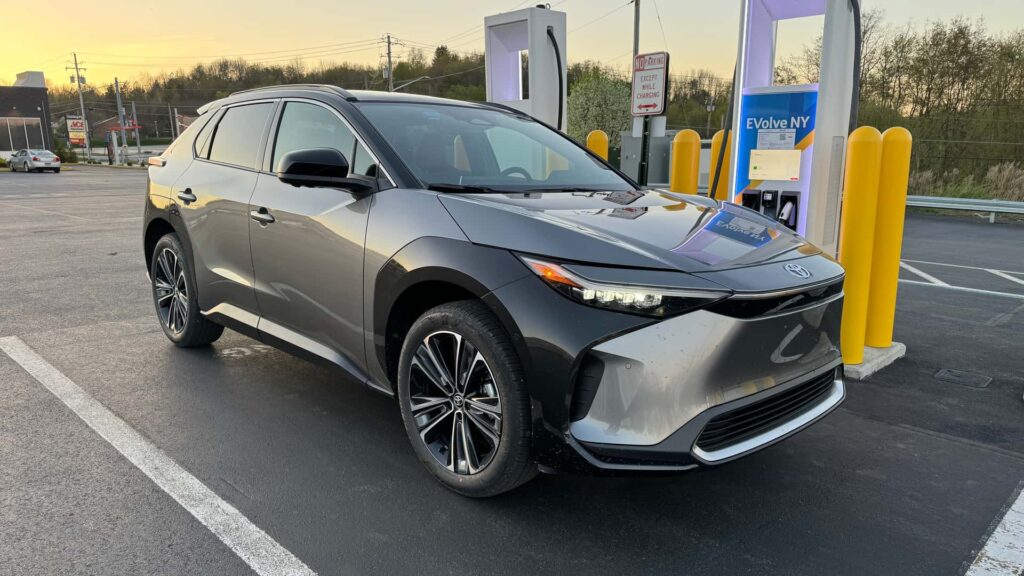
President Donald Trump slapped fresh tariffs on the auto industry on Wednesday, in a move that will likely make cars more expensive and complicate the path forward for automakers already navigating a difficult transition away from combustion vehicles.
In an address from the Oval Office, Trump said the U.S. would impose new 25% tariffs on all vehicles imported from outside the U.S. on April 2. Over half of the approximately 16 million vehicles sold in America in 2024 were imported, primarily from Canada, Mexico, South Korea, Japan and Germany.
“This is the beginning of Liberation Day in America,” the president said.
Trump has said he wants to bring more manufacturing of all kinds—including car production—to the U.S. And steep tariffs could indeed incentivize automakers to shift their supply chains. But the move will also make cars cost more in the interim, exacerbating one of the biggest hurdles facing the move to EVs.
Electric cars typically cost thousands more than combustion equivalents for a few reasons. Although battery costs have come down substantially over the last decade, EV battery packs are still costly. And many automakers have not hit the manufacturing scale necessary to make their investments in EVs pencil out. (General Motors, for example, just hit variable-cost profitability on its EVs toward the end of 2024.)
A trade group representing the U.S. operations of foreign automakers criticized the move.
“At a time when cost is the number one concern for American car buyers, U.S. automakers are working to provide a range of affordable vehicles for consumers,” Jennifer Safavian, President and CEO of Autos Drive America, said in a statement. “The tariffs imposed today will make it more expensive to produce and sell cars in the United States, ultimately leading to higher prices, fewer options for consumers, and fewer manufacturing jobs in the U.S.”
The new administration’s back-and-forth approach to enormous duties on major imports also makes it more difficult for automakers to plan for the future. Trump has twice postponed tariffs on vehicles imported from Canada and Mexico. Now those tariffs appear to be going into effect on a large scale and without exemptions. Though the last few months show that the policy could just as easily be reversed in short order.
This story is developing. Check back for updates.

